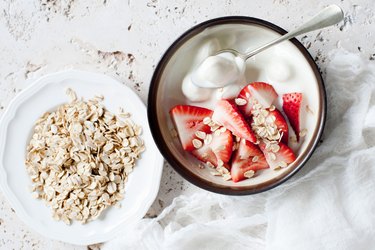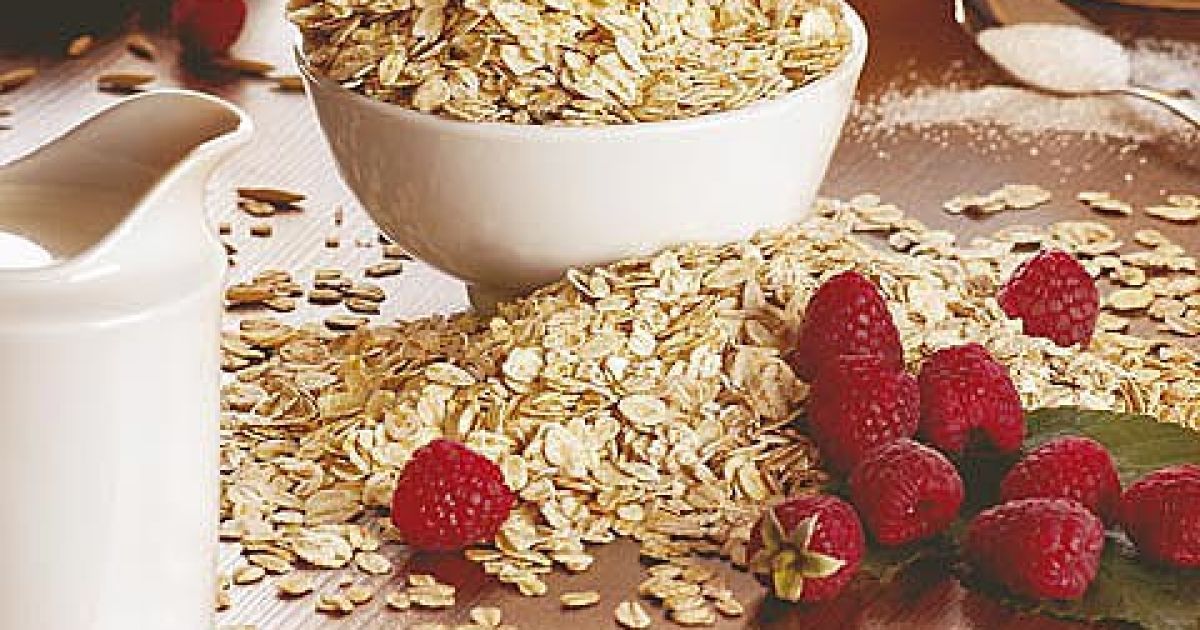Raw Oatmeal: A Natural Superfood
Raw oatmeal has gained popularity in recent years as a natural, whole-food option that can contribute to a healthy and balanced diet. As a minimally processed food, raw oats retain a higher concentration of nutrients compared to their cooked counterparts. The basic nutritional profile of raw oats includes fiber, protein, healthy fats, and various vitamins and minerals, making them a valuable addition to any meal plan. The versatility of raw oats allows them to be incorporated into various diets, including vegan, gluten-free, and raw food diets, further increasing their appeal to health-conscious individuals.
The Nutritional Advantages of Consuming Raw Oats
Raw oats offer several unique nutritional benefits that contribute to overall health and well-being. One of the primary advantages of raw oats is their higher fiber content compared to cooked oats. Fiber is essential for maintaining a healthy digestive system, regulating blood sugar levels, and promoting satiety, which can aid in weight management. Additionally, raw oats contain resistant starch, a type of carbohydrate that resists digestion and functions similarly to fiber. Resistant starch has been shown to improve insulin sensitivity, reduce appetite, and support gut health.
Raw oats are also rich in various vitamins and minerals, including manganese, phosphorus, magnesium, and zinc. Manganese plays a crucial role in bone formation, antioxidant defense, and metabolism. Phosphorus is essential for energy production, bone health, and DNA repair. Magnesium supports nerve function, muscle relaxation, and blood sugar regulation. Zinc is vital for immune function, wound healing, and protein synthesis. By incorporating raw oats into your diet, you can help ensure that you are meeting your daily requirements for these essential nutrients.
Potential Drawbacks and Precautions of Consuming Raw Oats
While raw oats offer several nutritional advantages, there are potential concerns and precautions to consider before incorporating them into your diet. One such concern is the presence of phytic acid, an antinutrient that can reduce the absorption of certain minerals, such as iron, zinc, and calcium. Soaking raw oats before consumption can help reduce phytic acid content, making the minerals more bioavailable. Additionally, soaking raw oats can improve digestibility and reduce cooking time.
Food safety is another important consideration when consuming raw oats. Uncooked grains can potentially harbor harmful bacteria, such as E. coli and Salmonella, which can lead to foodborne illnesses. To minimize this risk, always purchase raw oats from reputable sources and store them in a cool, dry place. If you are immunocompromised or have a weakened immune system, it may be best to avoid consuming raw oats altogether and opt for cooked oats instead.
Lastly, some individuals may experience digestive issues when consuming raw oats, such as bloating, gas, and abdominal discomfort. These symptoms can be attributed to the high fiber content of raw oats, which can be difficult for some people to digest in large quantities. To minimize these risks, gradually introduce raw oats into your diet and practice portion control. Balancing raw oats with other nutrient-dense foods can also help prevent digestive issues and ensure a well-rounded diet.
How to Incorporate Raw Oats into Your Daily Diet
Incorporating raw oats into your daily meals can be both creative and practical, allowing you to enjoy their numerous health benefits. Here are some ideas to help you get started:
- Smoothies: Add a quarter to a half cup of raw oats to your favorite fruit or green smoothie for an extra boost of fiber and nutrients. The oats will add a creamy texture and help keep you full longer.
- Overnight oats: Soak raw oats in your choice of milk or yogurt, along with sweeteners, fruits, and spices, overnight in the refrigerator. In the morning, you’ll have a ready-to-eat, nutrient-dense breakfast that can be enjoyed cold or warmed up.
- Energy balls: Combine raw oats with nut butters, dried fruits, seeds, and spices to create portable, high-energy snacks. Roll the mixture into balls and store them in the refrigerator or freezer for a quick and convenient energy boost.
- Chia pudding: Mix raw oats with chia seeds, milk, sweeteners, and flavorings, then let the mixture sit in the refrigerator for a few hours or overnight. The result is a delicious and filling pudding that can be enjoyed as a breakfast, snack, or dessert.
- Salad toppings: Sprinkle raw oats on top of salads for a crunchy, fiber-rich addition. Combine oats with seeds, nuts, and dried fruits for a customizable topping that adds both texture and nutrition to your favorite greens.
When incorporating raw oats into your diet, remember to practice portion control and balance them with other nutrient-dense foods. While raw oats offer numerous health benefits, they should not be relied upon as the sole source of nutrition. Aim to consume a variety of whole foods, including fruits, vegetables, proteins, and healthy fats, to ensure a well-rounded and balanced diet.
Comparing Raw Oats to Cooked Oats: Which is Better for You?
When considering the question “is raw oatmeal good for you,” it’s essential to understand the differences between raw and cooked oats. Both forms offer unique benefits, and the best option depends on individual health goals and preferences. Here’s a comparison of raw and cooked oats in terms of nutritional content, digestibility, and taste preferences:
- Nutritional content: Raw oats generally contain more fiber, resistant starch, and certain vitamins and minerals compared to cooked oats. However, cooking oats can increase their availability of certain nutrients, such as calcium, iron, and zinc. It is important to note that the nutritional content may vary depending on the specific oat variety and cooking method.
- Digestibility: Cooked oats are typically easier to digest than raw oats due to the gelatinization process that occurs during cooking. This process breaks down the starches, making them more accessible for absorption. However, soaking raw oats can help improve their digestibility by reducing phytic acid content and increasing the availability of certain nutrients.
- Taste preferences: Raw oats have a distinct, earthy flavor that some people may find appealing, while others may prefer the milder taste of cooked oats. The taste of raw oats can be enhanced by adding sweeteners, fruits, and spices, while cooked oats can be customized with various toppings and flavorings.
Ultimately, the choice between raw and cooked oats depends on individual health goals and preferences. For those seeking higher fiber and resistant starch content, raw oats may be the better option. However, if digestibility and milder taste are more important, cooked oats may be a better fit. Regardless of the choice, incorporating oats into a balanced and varied diet can provide numerous health benefits.
Real-Life Success Stories: The Impact of Raw Oats on Health and Fitness
Incorporating raw oats into one’s diet can lead to noticeable improvements in health and fitness. Here are a few inspiring stories from individuals who have experienced positive changes:
- Sarah: Sarah, a 35-year-old working professional, struggled with maintaining consistent energy levels throughout the day. After incorporating raw oats into her breakfast smoothies, she noticed a significant improvement in her energy levels and mental clarity. She attributes this improvement to the higher fiber content and slower digestion of raw oats, which provided her with a steady source of energy.
- David: David, a fitness enthusiast, was looking for ways to increase his protein intake without relying solely on animal products. By adding raw oats to his protein shakes and homemade energy balls, he was able to boost his daily protein and fiber intake. This change helped him improve his muscle recovery and overall fitness levels.
- Jessica: Jessica, a mother of two, found it challenging to prepare balanced meals while juggling her busy schedule. By soaking raw oats overnight and topping them with fruits and nuts in the morning, she created a quick, easy, and nutritious breakfast option for herself and her family. This change allowed her to start the day with a balanced meal, improving her energy levels and overall nutrition.
These success stories demonstrate the potential benefits of incorporating raw oats into one’s diet. However, it is essential to remember that individual results may vary, and a balanced, varied approach to nutrition is crucial for long-term health and well-being.
Expert Opinions and Scientific Research on Raw Oatmeal
When examining the question “is raw oatmeal good for you,” it’s essential to consider expert opinions and scientific research. While raw oats offer unique nutritional benefits, there are also concerns related to their consumption. Here’s a summary of the current understanding:
- Nutritional benefits: Raw oats contain more fiber, resistant starch, and certain vitamins and minerals compared to cooked oats. These nutrients contribute to overall health and well-being by supporting digestion, maintaining stable blood sugar levels, and promoting satiety.
- Phytic acid content: Raw oats contain phytic acid, an antinutrient that can reduce the absorption of certain minerals, such as iron, zinc, and calcium. However, soaking raw oats before consumption can help reduce phytic acid content, making the minerals more bioavailable.
- Food safety: Uncooked grains, including raw oats, can potentially harbor harmful bacteria, such as E. coli and Salmonella. To minimize this risk, always purchase raw oats from reputable sources and store them in a cool, dry place. If you are immunocompromised or have a weakened immune system, it may be best to avoid consuming raw oats altogether and opt for cooked oats instead.
- Digestive issues: Some individuals may experience digestive issues when consuming raw oats, such as bloating, gas, and abdominal discomfort. These symptoms can be attributed to the high fiber content of raw oats, which can be difficult for some people to digest in large quantities. To minimize these risks, gradually introduce raw oats into your diet and practice portion control.
In conclusion, scientific research and expert opinions support the consumption of raw oats as a natural, whole-food option with unique nutritional benefits. However, it is crucial to be aware of potential concerns, such as phytic acid content, food safety, and digestive issues. By following practical tips, such as soaking raw oats and practicing portion control, individuals can minimize these risks and maximize the benefits of raw oats in their diet.
Making an Informed Decision: Is Raw Oatmeal Good for You?
Deciding whether to incorporate raw oats into your diet ultimately depends on your unique health needs, preferences, and goals. While raw oats offer numerous nutritional benefits, such as higher fiber content, resistant starch, and various vitamins and minerals, there are also potential concerns, such as phytic acid content, food safety, and digestive issues. By understanding these factors and implementing practical tips, you can make an informed decision about whether raw oats are a suitable addition to your diet.
To maximize the benefits of raw oats, consider soaking them before consumption to reduce phytic acid content and improve digestibility. Additionally, practice portion control and balance raw oats with other nutrient-dense foods to ensure a well-rounded and varied diet. Remember that individual health goals and lifestyle play a significant role in determining whether raw or cooked oats are the better option for you.
In conclusion, when considering the question “is raw oatmeal good for you,” it’s essential to weigh the unique nutritional advantages and potential drawbacks of raw oats. By making informed decisions based on expert opinions, scientific research, and your personal health needs, you can confidently incorporate raw oats into your diet as part of a balanced, varied, and wholesome eating plan.








